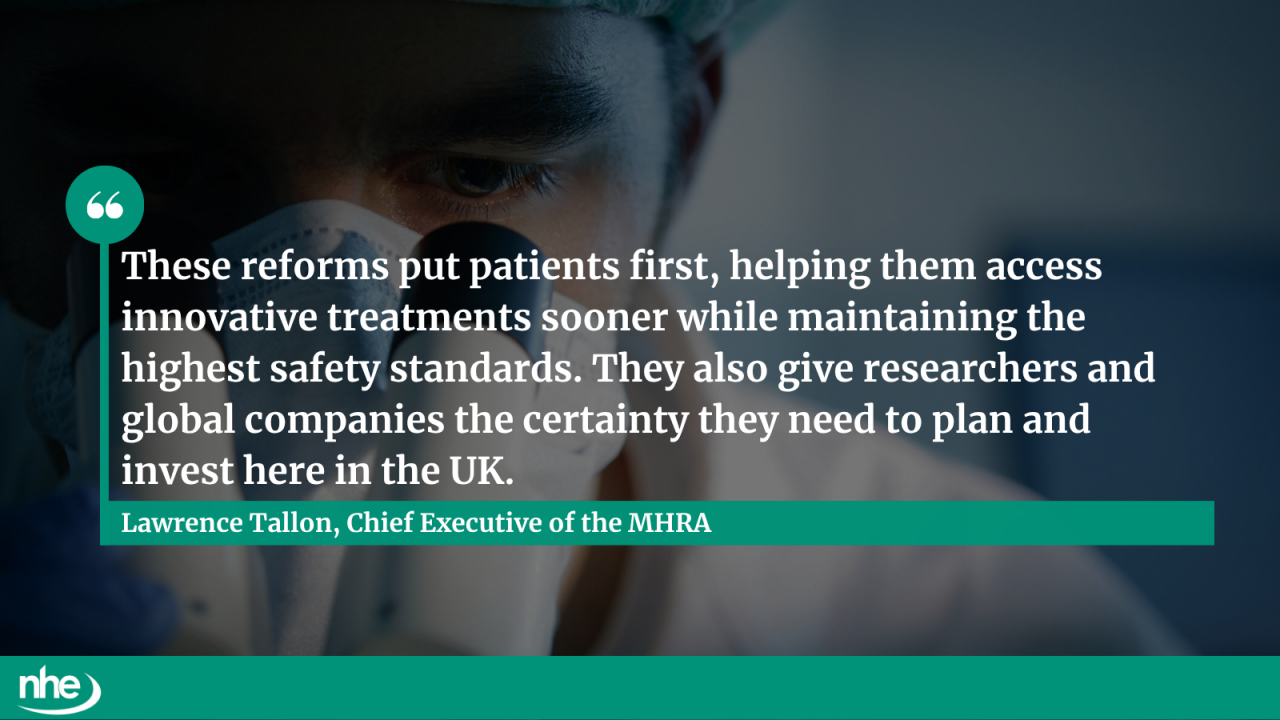The UK has significantly reduced the time it takes to approve clinical trials, cutting the average approval time from 91 days to just 41 days, thanks to major reforms at the Medicines and Healthcare products Regulatory Agency and the rollout of new digital platforms.
Published in the British Journal of Clinical Pharmacology, the findings confirm that 99% of applications are now reviewed within statutory timelines, with many completed well ahead of target. This means patients can access life-changing treatments – from cancer therapies to rare disease studies – weeks sooner than before.
The MHRA’s risk-proportionate review model, introduced in 2023, allows lower-risk trials to be approved in as little as 14 days. For example, a haemophilia A trial was able to begin several weeks earlier, giving patients faster access to promising therapies.
To support assessors, the MHRA is now deploying artificial intelligence tools that scan complex data, flag potential issues, and improve consistency – while final decisions remain with experienced human reviewers to ensure patient safety.
The reforms are part of the government’s 10 Year Health Plan and Life Sciences Sector Plan, aimed at modernising the UK’s research landscape. Key changes include:
- A national standardised contract to reduce delays
- Digital dashboards for real-time tracking of trial applications
- The Combined Review process with the Health Research Authority, streamlining ethical and regulatory assessments
- Public access to trials via the NIHR Be Part of Research service on the NHS App
Lawrence Tallon, Chief Executive of the MHRA, said:
“These reforms put patients first, helping them access innovative treatments sooner while maintaining the highest safety standards. They also give researchers and global companies the certainty they need to plan and invest here in the UK. By more than halving approval times through digital tools with proportionate oversight that prioritises patient safety, we are increasing the efficiency and attractiveness of the UK’s clinical trial ecosystem and reinforcing our global reputation as a leading destination for cutting-edge research.”

New MHRA AI tools include the Knowledge Hub, helping assessors provide clearer advice to sponsors and the GMP Compliance Checker, verifying manufacturing documents in seconds
The MHRA’s review of over 4,600 trials in its first year shows near-universal compliance with statutory timelines. New legislation coming in April 2026 will require all UK trials to be publicly registered, with plain-language summaries of results to improve transparency and build public trust.
Sponsors will also benefit from extended response deadlines, aligning UK timelines with international standards and making the UK more attractive for global research investment.
Together, these reforms position the UK as a global leader in clinical research, offering speed, certainty and innovation while maintaining rigorous safety standards.
Image credit: iStock



















